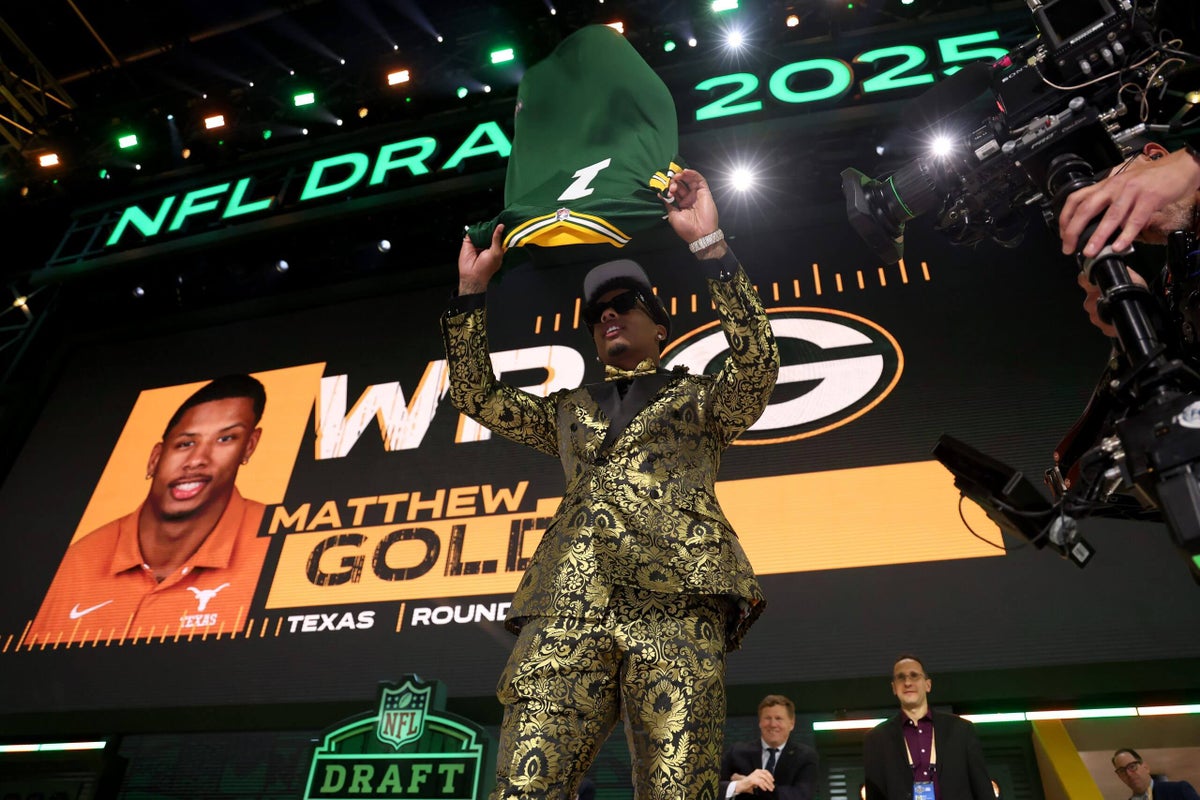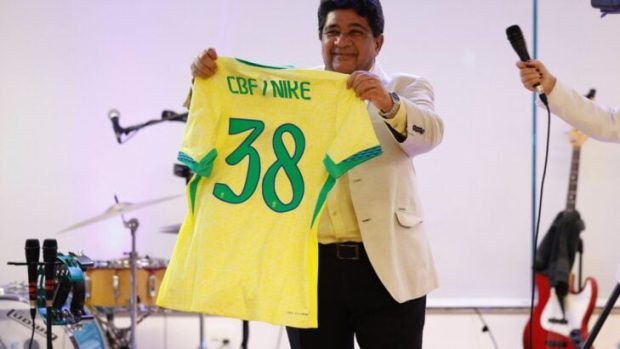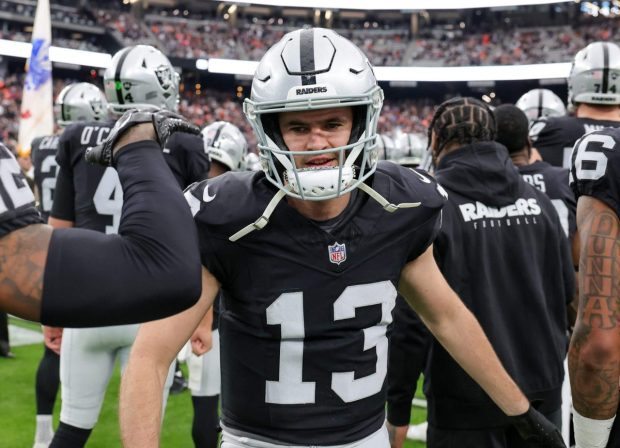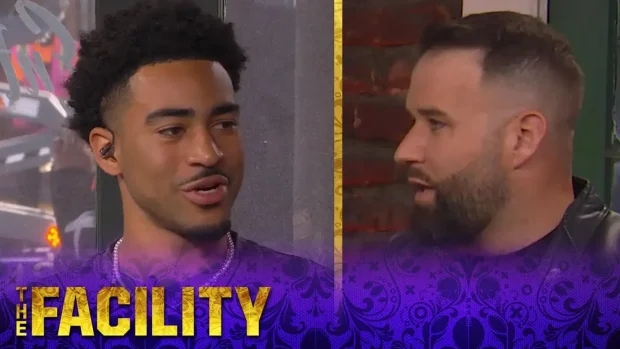

Welcome to the 41st media mailbag for The Athletic. Thanks for sending in your questions via the website and app. There were close to 100 questions, so this is the first of two parts.
I’m sure there have been many comments on Mel Kiper Jr. and the NFL draft. Simply, does he (or any draft expert) eventually come to terms with the fact that just maybe they’re wrong on (Shedeur Sanders)? At the end of the day, 32 NFL front offices should know more than Mel or anyone else in the media, correct? — Jarren D.
As I wrote in a piece with my colleagues Andrew Marchand and Dan Shanoff, what viewers saw on ESPN was the nexus of Kiper being hyper-invested in his Sanders analysis running into the reality of what was actually happening. The reality was that NFL Draft evaluators saw Sanders in a very different way than ESPN’s lead analyst did. While NFL front offices will not always get analysis correct, they have infinitely more resources to evaluate than Kiper, NFL Network’s Daniel Jeremiah or any NFL Draft analyst. But this is the important media point: ESPN encourages its opinionists to make news. They highlight that opinion daily on their digital platforms. If you have eyes, you see this. So Kiper accomplished what ESPN desires most: people talking about and consuming ESPN. From my perspective, he was so far dug in on Sanders that he didn’t provide viewers much more than a man screaming at the wind. The NFL Network had the far superior product last week.
Advertisement
Watching The Masters and seeing the fans engaged and focused reminded me of growing up without cell phones. You were intent on watching the game and observing the little things. Do you think this catches on in the other major sports? — Coach C.
Nope. The NFL or NBA insisting you can’t bring your cell phone to a game? Goodbye, business.
Is there any real, effective way for viewers to give meaningful feedback to TV producers who routinely miss the ongoing play (thinking hockey here) while they focus on a player no longer involved or anything else other than what is currently happening? Same with missing a face-off to focus on a guy on the bench, etc. — John M.
Network PR departments and broadcast people do monitor comments on social media, for sure. If you were offering something in good faith and had a producer’s contact info, they would be interested in feedback. Too much, though, and you’d come off as a crank. Keep in mind, nobody who cares about the product ever wants to miss plays. Sometimes, stuff happens. I find most of the people who work for national rights-holders to be exceptionally skilled at what they do on the whole.
The ratings for the UFL have been notably down this year. That being said, are enough people tuning in to justify the investment by Fox to keep it going? While the TV presentation has been fairly good, I wish I could say the same for the actual football. — Harvey C.
I’m not an ardent viewer of the product, but there is R&D value in testing things in the UFL that you could later use on an NFL production. SBJ’s Austin Karp and Ben Fischer reported that the UFL has averaged 604,000 viewers through 12 games, down 33 percent compared to the same period last season. The high was Week 3 on ABC, when D.C. Defenders-St. Louis Battlehawks drew 967,000 viewers. I would predict Fox Sports and RedBird Capital Partners will have a Year 3.
I get frustrated by sports media not pursuing some stories that I feel are important (for example, the Justin Tucker allegations). It seems to give leagues a sense that they can slow walk those stories without any repercussions. Do you agree with my perspective, and if so, how can the media landscape change for the better? — Brian W.
We live in a time of legacy media companies, which traditionally have money for such coverage, cutting back on staff, including investigation departments. Look no further than the Los Angeles Times and Washington Post. Such stories take a lot of time, resources, and expertise, and the Tucker allegations do not come to light without the dogged work of the Baltimore Banner. I think it depends on the outlet. At The Athletic, look at the resources invested in coverage of the former members of Canada’s 2018 World Juniors who are currently on trial for sexual assault in London, Ontario. I wish I could give you optimism on how the landscape changes, but disinformation is winning globally, given the current digital economy rewards content that doesn’t need to be vetted rigorously.
Advertisement
Will sports broadcasters ever use technology to allow us to select specific audio feeds such as 1) announcer-less with crowd noise only. 2) announcers with no crowd noise. 3) crowd with stadium PA only. I am severely hearing impaired and currently can barely make out what announcers are saying, which I maintain is due to production people juicing up crowd noise. — Mach D.
Is there any chance we can be given at home sometime in the future via traditional TV or streaming the ability to choose OUR OWN crowd noise levels? This year again much of the NCAA men’s basketball tournament audio crowd noise buries the PBP and analysts’ comments. I also sometimes find this occurs on some MLB telecasts. We do not need rock concert level crowd noise ruining the watching experience. — Wayne B.
I think for sure you will have the option in the future to watch games without sound and have different angles to choose from, as if you were a director. As far as controlling the audio mic levels on the field, I’d imagine this will be possible too.
Let’s assume Apple and MLS break up. (Not terribly far-fetched given that the numbers journalists have been able to discern have not been encouraging for either party.) In this scenario, who in broadcast/streaming media would be interested in MLS’ rights? Would MLS return to local market deals? — Mark L.
What do you think are the chances that MLS or Apple opt out of their current rights deal? If there is an opt-out, who do you see possibly stepping up on the linear side for MLS rights? — Buford J.
I thought this survey piece from The Athletic was interesting as far as how MLS GMs see the deal. I still think Apple and MLS make it to the end. The linear demand for MLS just isn’t there in terms of the financials.
The Sports Broadcasting Act forbids “organized professional football” from being telecast on Saturdays. With NCAA football about to become “professional” how are networks planning to deal with this? If the law is simply going to be ignored, what is preventing the NFL from scheduling a season-long slate of games on Saturdays? — Kevin J.
Excellent question. To get some real insight, I reached out to Irwin A. Kishner, a partner at Herrick, Feinstein LLP and a national sports law expert. Here’s what he and Herrick associate Jessie Root sent back:
“The Sports Broadcasting Act of 1961 was enacted to grant antitrust exemptions to professional sports leagues, most notably allowing them to pool television rights for collective broadcast negotiations. A key provision of the Act, however, prohibits the televising of professional football games on Fridays and Saturdays during the high school and college football seasons — specifically, from the second Friday in September through the second Saturday in December. This restriction was intended to preserve the traditional prominence of amateur football by minimizing direct competition from the NFL during these times.
“Recently, the NCAA’s decision to allow Division I schools to directly compensate athletes marks a significant move toward a more professional model of college athletics. Despite this shift, college football is still classified as an amateur sport, and the Act defines intercollegiate and interscholastic football contests by the involvement of institutions of higher learning or accredited or certified secondary schools, not by whether the players receive compensation.
Advertisement
“This distinction is particularly important because the Act’s Friday-Saturday restriction applies only to professional football. As long as NCAA football is legally considered amateur, it remains outside the scope of such restriction, therefore allowing networks to continue broadcasting college games on Saturdays. If this classification were to change — through legal reinterpretation or challenge — the NFL may be incentivized to schedule games on Saturdays during the protected period. However, such a move would likely face strong opposition from the NCAA and high school football organizations, which benefit from the current protections.
“The framework established by the Act — reserving Fridays for high school football and Saturdays for the NCAA — still holds for now and is expected to remain in place for the foreseeable future. College football has firmly occupied Saturdays while the NFL dominates Sundays, creating a familiar routine to the fall sports calendar. However, with college athletes now able to profit from their name, image and likeness through endorsements and sponsorships — along with direct payments from schools and other monumental shifts toward a professional athletic model — college football is beginning to resemble the commercial dynamics of the professional game.
“As the line between amateur and professional continues to blur, the rationale for preserving Saturdays exclusively for the college game may start to lose its force, and the NFL may be positioned to challenge that long-standing arrangement.”
(Photo: Stacy Revere / Getty Images)
This news was originally published on this post .











Be the first to leave a comment